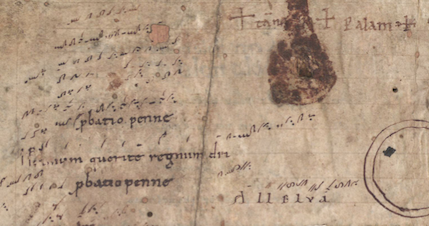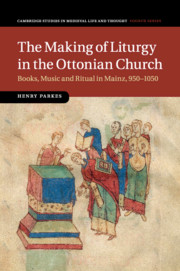Contact
Biography
I completed my PhD in Musicology at the University of Cambridge (2012). Following a Junior Research Fellowship at Gonville and Caius College, Cambridge, I taught for five years at Yale University, where I was jointly affiliated to the Department of Music and Institute of Sacred Music.
Expertise Summary
My expertise is in the musical and religious cultures of medieval Western Europe, with special attention to Christian liturgical chant (including Gregorian Chant) and sacred polyphony, and the forms of worship in which they were was sung. I am fascinated above all by the men and women who created, memorised, disseminated and discussed music in the distant past, by the experiential dimensions of medieval worship (especially the Divine Office), and by the role of writing as both an enabler and an inhibitor of musical creativity in Western Music.
I am pleased to receive enquiries at any time about MRes or PhD research opportunities in medieval music, liturgy, and manuscript culture, and histories of music and religion, including funded collaborative projects with external partners.
My non-academic CV includes Fellowship of the Royal College of Organists. I help look after the arrangements for the Barber Organ Scholarship, which is open to undergraduate and graduate students at the University of Nottingham.
Teaching Summary
As a teacher I cover the full gamut of pre-modern musics, from Antiquity to the Renaissance. I take particular pleasure in using early repertories and practices to challenge students' preconceptions… read more
Research Summary
To date most of my publications have concerned the decades around the year 1000 CE, when Western Music was first flirting with the stave line, just as many other aspects of European culture were at… read more
Selected Publications
PARKES, HENRY, 2025. The Liturgical Offices of St Oswald at Weingarten, and a New Hypothesis for the Origins of the 'Continental' Historia. In: DALE, JOHANNA, ed., Liturgy, Literature, and History: Oswald and Northumbria and the Cult of Saints in the High Middle Ages Liverpool University Press. 183-203
PARKES, HENRY, 2024. Gregory and Friends: Plural Authorities in the History of Romano-Frankish Chant. In: RILLON-MARNE, ANNE-ZOÉ and SAINT-CRICQ, GAËL, eds., Composers in the Middle Ages The Boydell Press. 21-38
As a teacher I cover the full gamut of pre-modern musics, from Antiquity to the Renaissance. I take particular pleasure in using early repertories and practices to challenge students' preconceptions about the Western 'classical' tradition.
Students can expect to modules with a strong emphasis on cultural and social history, in addition to classes on performance, analysis, musical notation and the History of the Book. I am deeply committed to teaching about oral traditions, alternative kinds of musical literacy and knowledge, and anything cultivated on peripheries, margins and borders.
In 2025/26 I am teaching the introductory music history course 'Repertoire Studies 1: Music Before the 20th Century' and an upper-level module on 'Music and Society in Tudor England'. I also convene the Conducting and Dissertation modules.
I am an Associate Fellow of the Higher Education Academy (AFHEA), as accredited by Advance HE.
Current Research
To date most of my publications have concerned the decades around the year 1000 CE, when Western Music was first flirting with the stave line, just as many other aspects of European culture were at this time renegotiating their relationship with writing.
At present I am working on the medieval Latin chants associated with the Divine Office, or cycle of daily prayer, a repertoire that comprises maybe 40,000 compositions. This is an amazingly rich musical tradition to study. I get to work forensically with the thousands of original handwritten copies that survive from the ninth to the sixteenth centuries, from Iceland to Jerusalem, and from Poland to Portgual, thinking about practices of notation, transmission, and memory. I get to think about the cultural status of these pieces, some of which were known universally across Western Christendom, others unique to a single place, in which are expressed people's beliefs and identities. I also take great pleasure in exploring the lives of the musicians themselves, comprising ordinary men, women, and children (only very rarely were chant singers professionals), who made music in communal religious contexts that were fundamentally participatory and inclusive.
One of my current research projects explores precisely this division of musical labour, which in medieval cathedrals and monasteries was supported by written rotas. A tiny handful of these rotas survive, along with substantial documentary evidence that has never properly been analysed. I am currently writing on a book on the topic, focussed on the surviving rotas of sixteenth-century Exeter Cathedral, which reveal an astonishing amount about local cultures of musical performance just before the Reformation.
Between 2023 and 2025 I led a project entitled 'Music in the Shadows: Staging Medieval Night Worship 800-1300', funded by the Arts and Humanities Research Council. This research explored how medieval religious communities much of their musical lives during the hours of darkness, performing complex music in challenging circumstances that we can barely imagine today. Our project included performances of reconstructed Night Office services at Southwell Minster and Worksop Priory, in Nottinghamshire. Project outputs included a large journal article on night singing, celestial observation and the measurement of time in the famous Benedictine monastery of Fleury (Journal of Musicology, 2025).
In recent years I have also worked on the cultures of creativity associated with Divine Office music, including a BA/Leverhulme-funded project 'Wordless Singing in the Medieval Church', which recorded and mapped the repertory of exrtraordinary, long melismas known as 'neumata'. Part of this work involved the use of coding and machine learning techniques to help locate previously unidentifiable inscriptions of these melodies. Below is a typical page of interest, from 1000 years ago, in which one or more scribes jotted down some of their music in 'neume' notation:

In 2020 I published a critical edition of five early eleventh-century tracts on liturgy and chant, four of them by the celebrated music theorist Bern of Reichenau. The volume, Berno Augiensis Tractatus liturgici, appears in the Belgian series Corpus Christianorum Continuatio Mediaevalis. This project previously spawned articles on the latent tensions in Gregorian chant as experienced by eleventh-century performers (Journal of the American Musicological Society, 2017), and on the possibility of chant reforms around the first millennium as found in the famous Hartker Antiphoner, from St Gallen, Switzerland (Early Music History, 2018).
As well as thinking broadly about musical manuscripts, institutions and traditions in the central Middle Ages, I am very interested in specific chant compositions and their creators. I have published chapters on the relationship between music, hagiography and community in compositions for the Anglo-Saxon saints Edmund, Guthlac and Oswald, with further work in progress on the cult of St Benedict at Fleury.
On the basis that Christian chant was inseparable from the rituals in which it was performed, I have devoted much of my research to the history of Latin liturgy. In early 2020 I had an article published in a history journal (Early Medieval Europe) on King Henry II of Germany and his relationship to the 'Romano-German Pontifical', an important book tradition of the eleventh and twelfth centuries history which had previously been misdated and (I argue) misinterpreted. Work on that project began with my doctoral thesis, in which I examined making and use of liturgical books (including music books) in the German archiepiscopal seat of Mainz, Germany, between 950 and 1050. These ideas were developed further in my monograph, The Making of Liturgy in the Ottonian Church (Cambridge, 2015), which was published in the series Cambridge Studies in Medieval Life and Thought.
